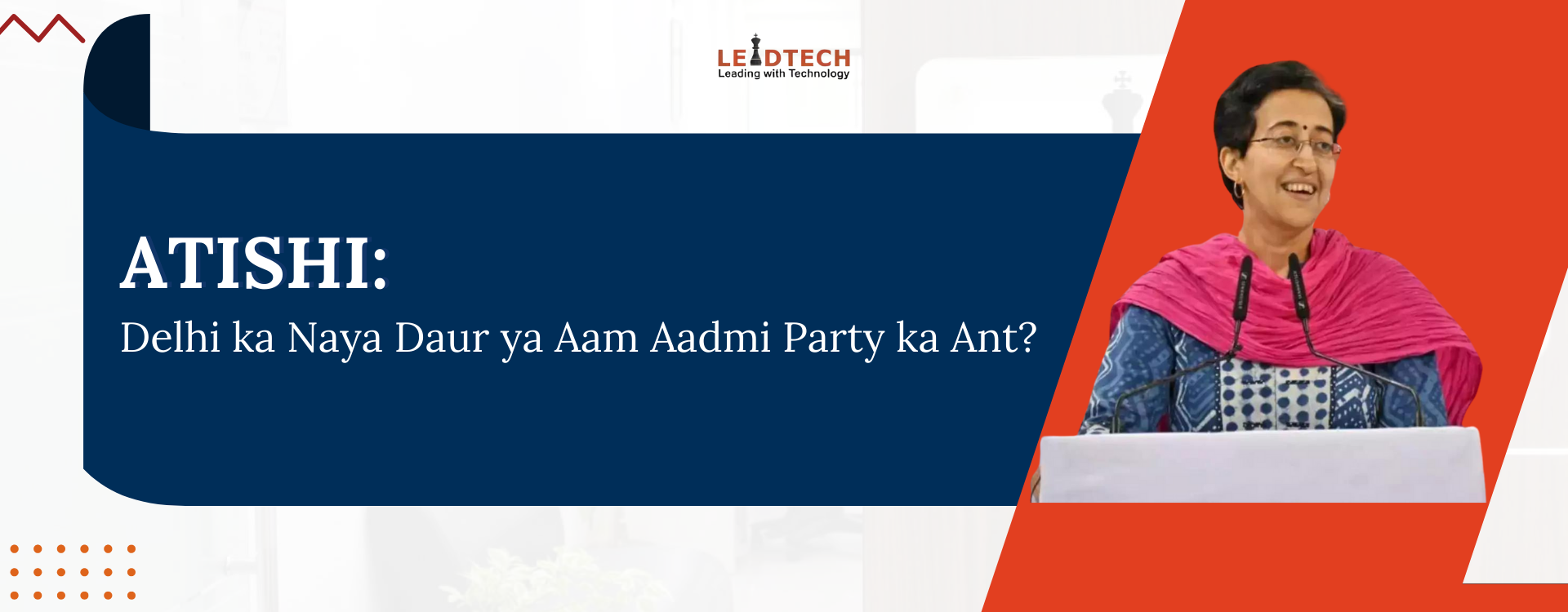
Atishi Marlena is a name that has become synoname of education reforms and progressive governance in Delhi, marking a new chapter in Aam Aadmi Party (AAP) leadership. Her ascent in politics speaks to a generation that views public service as a means for transformative change rather than personal ambition. Yet, amid the growing complexities of Delhi’s political landscape and beyond, a pressing question remains: Is Atishi ushering in a bright new era for the capital, or is she a symbol of AAP’s potential decline?
Atishi’s political journey is indeed inspiring. Armed with an education from Oxford and a strong background of education, she joined AAP with a clear vision, to overhaul Delhi’s education system. Her work as an advisor to the Delhi Education Minister has not only transformed government schools but also earned accolades both nationally and internationally. By improving infrastructure, introducing new curriculums, and enhancing teacher training, Atishi has played a vital role in bolstering AAP’s reputation for effective governance.
Many see Atishi as a beacon of a new political landscape in Delhi—one where educated professionals and technocrats prioritize addressing long-ignored public issues. Her fresh perspective and hands-on approach to governance offer a model of policy-driven politics with education in focal point that could have far-reaching implications for urban centers across India.
However, the promise of this new dawn comes with significant challenges. AAP, once a formidable voice against corruption, has faced fluctuating political fortunes. Despite its successes in Delhi, the party has grappled with internal conflicts, controversies, and legal entanglements that have eroded some of its initial momentum. Leaders like Atishi are essential for restoring public trust, but the crucial question is whether they can achieve this in a tumultuous political environment.
Moreover, the rise of the BJP and its firm grip on Indian politics presents a formidable barrier. Although AAP has made strides in Delhi, it has struggled to expand its reach nationally, raising concerns about its potential as a broader political alternative. Will AAP remain confined to a regional force, or can it break through to gain a foothold on the national stage?
Atishi’s role within AAP is pivotal. She has the potential to solidify the party’s identity as a governance-focused alternative, but this depends on her ability to navigate the turbulent waters of Indian politics, which requires not only effective governance but also coalition-building and resilience in diverse electoral landscapes.
Atishi embodies AAP’s foundational ideals: a dedication to education, reform, and good governance. Yet, the path ahead is fraught with challenges—both from external political forces and the internal dynamics of her party. Whether she will lead Delhi into a transformative era or witness the party’s decline remains uncertain, hinging on how AAP addresses its upcoming political challenges.
Ultimately, Atishi’s journey is deeply intertwined with the fate of AAP. Whether we are witnessing the dawn of a new political era or a prelude to decline, time will reveal the outcome. What is clear is that Atishi has already made her mark on Delhi’s politics, and her legacy will likely shape the city’s future for years to come.

